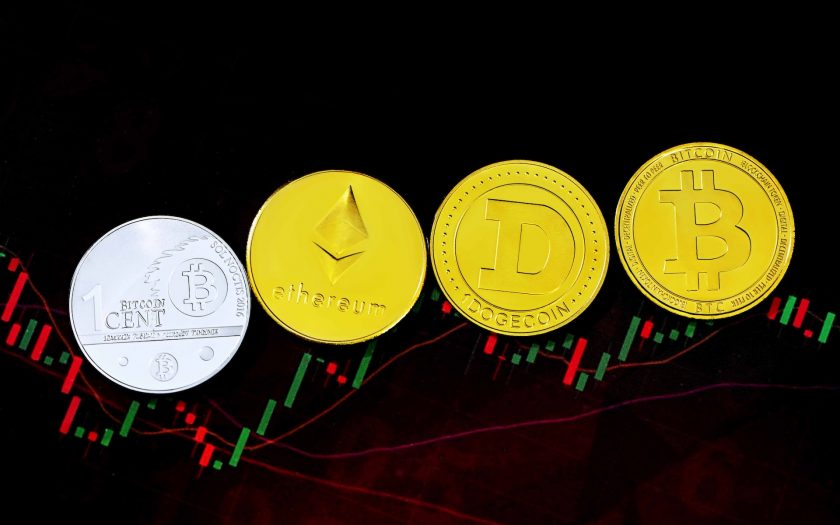
Subscribe
Blockchain is one of the most fascinating innovations of our generation, revolutionising numerous products and services. By 2030, the blockchain market could be worth $1.4tn and boost global gross domestic product by $1.76tn.
Today, 300m people own cryptocurrencies, the most widely used blockchain application, driven by crypto’s remarkable ability to address certain challenges. However, regulation is projected to play a pivotal role in the industry’s next chapter – the World Economic Forum predicts that adoption will be ‘directly correlated with its level and quality’. Binance believes that comprehensive, consistent and risk-based regulations are key to responsible innovation that unlocks the industry’s potential.
Global inequality leaves 1.7bn people, especially women, people of colour and underprivileged communities, without bank accounts. Blockchain eliminates traditional barriers such as prohibitive fees and proximity to physical banks.
Reaching $589bn, remittances are a major driver of economic growth for developing countries. The G20 roadmap recognises crypto’s immense potential to bring down costs from the current global average of 7% closer to the UN’s sustainable development goal of 3%. Blockchain-based payments are faster and more efficient, processing international transactions in minutes rather than in days as in traditional finance.
Small- and medium-sized enterprises account for 90% of businesses and 50% of jobs globally. Decentralised finance solutions can bridge the $8.9tn gap in SME finance.
Blockchain has boosted US GDP by $407bn, Germany’s by $95bn, and the UK’s and Japan’s by $72bn each. In developing markets, crypto has been proven to drive economic growth in line with financial literacy. Globally, Web 3 start-ups have generated $89bn in venture capital funding and can attract top talent.
Blockchain has had tremendous impact beyond financial services. It can address the identity gap for 1bn people with no national ID, provide cutting-edge solutions in manufacturing and supply chains (now a $86m industry), and empower local creator and gaming economies with global reach and more efficient monetisation tools.
Regulatory certainty creates a safe space for innovation – driving consumer trust, market order, clarity and impact. The WEF has called for bespoke frameworks for crypto that address issues like financial stability and crime prevention, informed by macroeconomic impact studies.
Many jurisdictions have hesitated over whether to adopt new or existing frameworks, regulators or both. However, the International Monetary Fund’s view is that the ideal regulatory response should be coordinated, consistent and comprehensive to minimise regulatory arbitrage.
Global standard setting bodies play a critical role in driving consistency and adherence to best practices. The Financial Stability Board’s recent proposals, the cryptoasset roadmap from the International Organization of Securities Commissions and the Basel Committee’s framework for banks’ crypto exposures are steps in the right direction. The FSB’s proposals specifically underscore the importance of domestic and international co-operation. Additionally, the IMF highlights taxonomies as a valuable tool for visualising how emerging terminology fits within an existing ecosystem.
However, standards only work with consistent, timely implementation. Out of the 200 countries committed to implementing the Financial Action Task Force’s travel rule on crypto, only 29 have done so. Global harmonisation will enable easier, less costly and more robust compliance.
Successful, comprehensive regulations address six elements: legal certainty, effective risk monitoring, financial stability, consumer protection, market integrity, and cross-border co-operation. Conversely, clarity on what’s within scope must be ensured: tokens used as utilities should not be subject to the same regulations as cryptoassets used as financials instrument.
Regulation must be proportionate to the nature, scale and complexity of the risks. The FSB concurs: authorities should apply ‘effective regulation, supervision and oversight’ proportionate to the financial stability risk the industry poses.
The Organisation for Economic Co-operation and Development highlights education as a key user protection tool.
As an industry leader, protecting consumers and giving them choice remain Binance’s top priorities. This balance is achieved through local regulations that align with international standards. Transparency through clear communications, risk disclosures and collaboration with authorities is also key to consumer protection.
By working together, private companies and public regulators can implement global standards in a harmonised, consistent and proportionate manner, which can unlock new opportunities and growth.
Rana Kortam is Director, Global Public Policy at Binance.
This article was originally published in OMFIF’s ‘Digital assets’ report.
© 2022 OMFIF
Privacy Policy
Subscribe
 How To Make Huge Profits In A Short Time With Crypto
How To Make Huge Profits In A Short Time With CryptoGet detailed training system that shows an absolute beginner (without any skill) how to make huge profits in a short time with crypto.
 Crypto + NFT Quick Start Course
Crypto + NFT Quick Start CourseThe #1 course for profit in the Crypto & NFT world - You will discover the secrets that 99% of people don’t know yet





